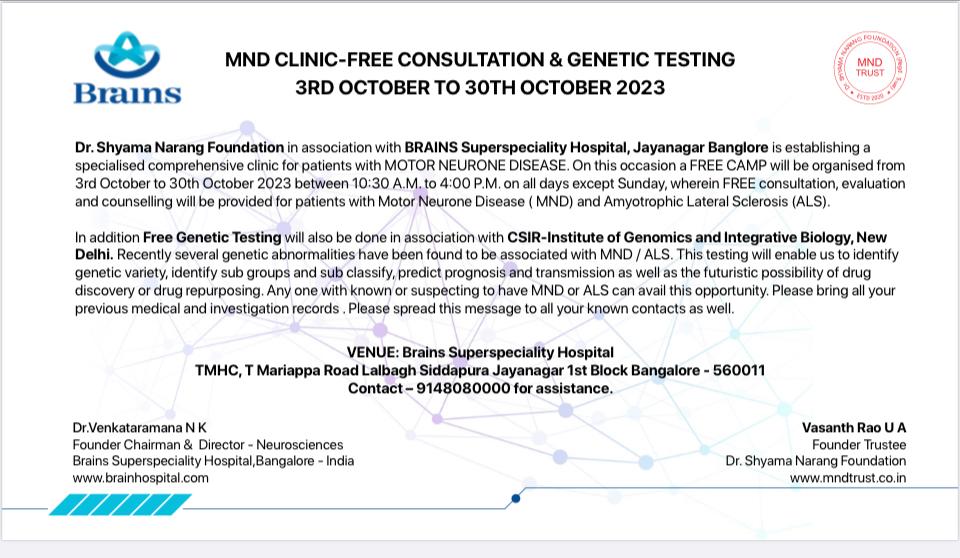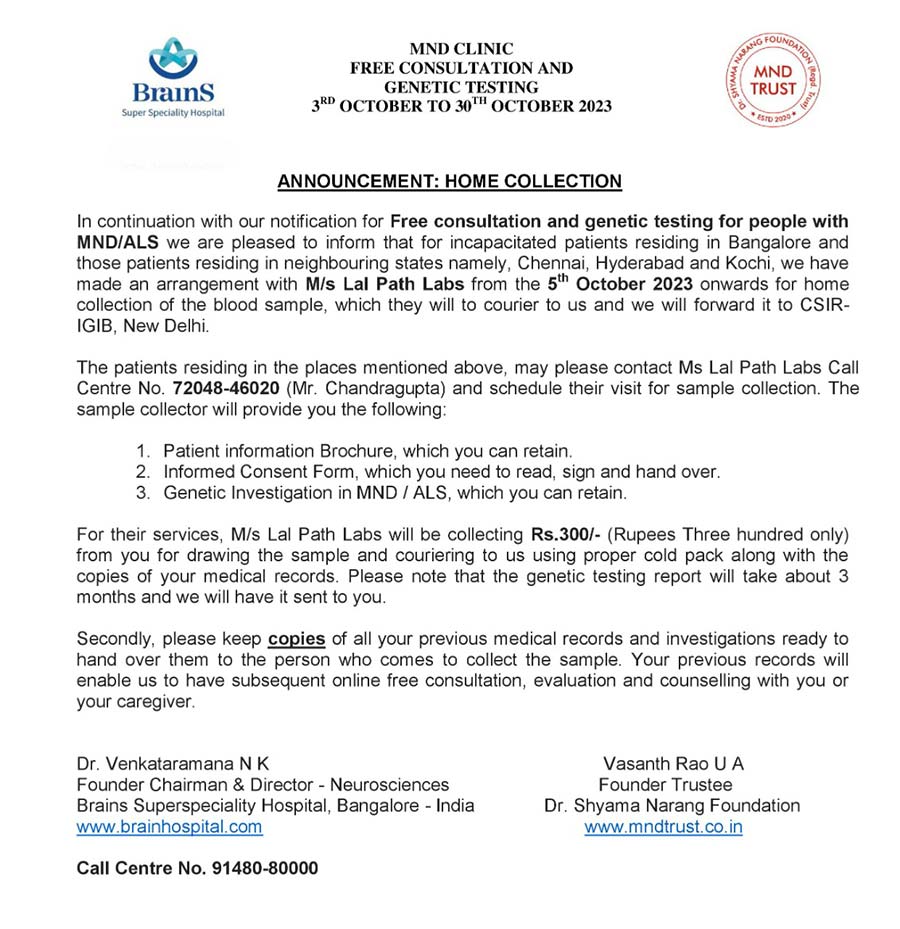Living with MND
“Perseverance is not a long race; it is many short races one after the other.” – Walter Elliot
Newly Diagnosed
What do I do now?
 The diagnosis of MND can be overwhelming. Once you have the diagnosis, it might be difficult to know where to begin. Take time for yourself first to process the diagnosis, and gather as much information as you can to understand what lies ahead. Here are some things you might consider after the diagnosis:
The diagnosis of MND can be overwhelming. Once you have the diagnosis, it might be difficult to know where to begin. Take time for yourself first to process the diagnosis, and gather as much information as you can to understand what lies ahead. Here are some things you might consider after the diagnosis:
1. Do not rush into buying equipment:
Before you make any purchases, get a thorough assessment done by an Occupational Therapist who will instruct you on what equipment you will need and what modifications are required for your house. These can be implemented over time, especially the home modifications.
2. Plan your finances:
Working with a financial advisor might be beneficial in sorting through insurance and benefit claims. You could also consider talking to the bank about how a carer or loved one can handle your account for you in case you are unable to do so.
3. Note down relevant questions and contacts:
As you will have a multitude of questions, noting them down or asking someone else to do it for you can help you address these to your care teams during an appointment. Have relevant contacts jotted down.
4. Understand the treatments available:
Even if you do not necessarily need them at the current stage, finding out as much information about the treatment available can help you make clearer decisions down the line. Ask your healthcare team about your options and find out as much as you can about each as timely decisions based upon a clear understanding of the facts might be important at times. If you want to take part in clinical trials, talk to your doctor and understand whether options are available before making an informed decision.
5. Think Ahead: Although this is a difficult task, plans have to be made for the future. This can ensure you can communicate your wishes when you can do it the easiest. Get in touch with a good palliative care agency as early as recommended by your healthcare team so that you can assure a better quality of life, emotional and psychological assistance for yourself and your loved ones.
This information has been written by referring to the amazing guide by the Motor Neuron Disease Association which you can find here
How to communicate diagnosis?
 Usually, those diagnosed would choose to tell their family members and close friends first. After all, they are the ones who would notice first as well. Some people, however, choose to tell their loved ones after some time passes, waiting for the right opportunity where they can take time out and speak with them.
Usually, those diagnosed would choose to tell their family members and close friends first. After all, they are the ones who would notice first as well. Some people, however, choose to tell their loved ones after some time passes, waiting for the right opportunity where they can take time out and speak with them.
As it is a difficult and often emotional conversation, choosing how to tell family and loved ones is an important consideration. You could also ask someone you trust to help you with it.
Generally, it is best to approach the topic head-on- explaining what the diagnosis is and what it means for you going forward.
Tell them:
- It is not a communicable disease/ that it does not spread from person to person
- It will progress over time
- There is no cure
- Most importantly, the disease does not change who you are.
There is no right way or right time to do it. There are general pointers that can help the conversation flow smoothly.
Some are:
1. Decide on how you want to manage emotions during the conversations:
 There might be certain situations where you don’t want to upset someone or get upset yourself during the conversation. In that case, the direct approach of laying out the diagnosis can be the most helpful. You might want to tailor this depending on who you are telling it to.
There might be certain situations where you don’t want to upset someone or get upset yourself during the conversation. In that case, the direct approach of laying out the diagnosis can be the most helpful. You might want to tailor this depending on who you are telling it to.
However, it is also important to understand that being open about how you feel is not a bad thing. It can encourage the other person to tell you how they feel in return and can help you both figure out how to deal with how you feel. It can also release pent-up emotions and help you de-stress.
2. Find a good time where you can talk with no distractions: Make sure distractions such as phones, noises, activities are not an obstacle when communicating the diagnosis.
3. Keep it simple: A clear and simple explanation can help make sure they understand the condition better. This is especially important when speaking with young people, those with sensory impairments or learning difficulties.
4. Check their understanding: People have trouble processing information when under emotional stress. You can gently check whether they understand by asking them what they understood and encouraging questions. If you don’t know something, be candid about that and encourage them to learn more about the condition.
You can choose to do it in whatever way you feel comfortable, whenever you want to share it. When you choose to share it may depend on how you are coping with the diagnosis, your relationship with that person, how the condition is progressing, and other circumstances. However, also consider how communication would be easier earlier on when thinking about telling the diagnosis. In later stages, you might have trouble speaking, fatigue, or other issues that hinder the communication.
In case you are working, you might consider telling your employer about the diagnosis. If you want to keep working, they can work with you to figure out how to navigate that and if you would like to leave, then you can do so in the way you feel fits best. Telling your colleagues can also be discussed and if you do want to do it, you can figure out what information you want to share and how. This can be helpful when going forward as they feel included and can offer support if you want it.

Emotional lability is when a person has rapid, exaggerated changes in mood- with uncontrollable laughter, fits of crying or heightened anger. This can occur in some cases of MND and can further complicate the discussion of the diagnosis. In this case, explaining to them about the condition and telling them that it is normal for you to have these responses can help them understand you better.

Remember– you are not alone. Whatever you or your loved ones are dealing with can be addressed with your doctor, to a good therapist or to us if you would like to. If you need support or access to a bigger community, please feel free to reach out to us.

 Dr. Alexander Thomas | President, AHPI
Dr. Alexander Thomas | President, AHPI
